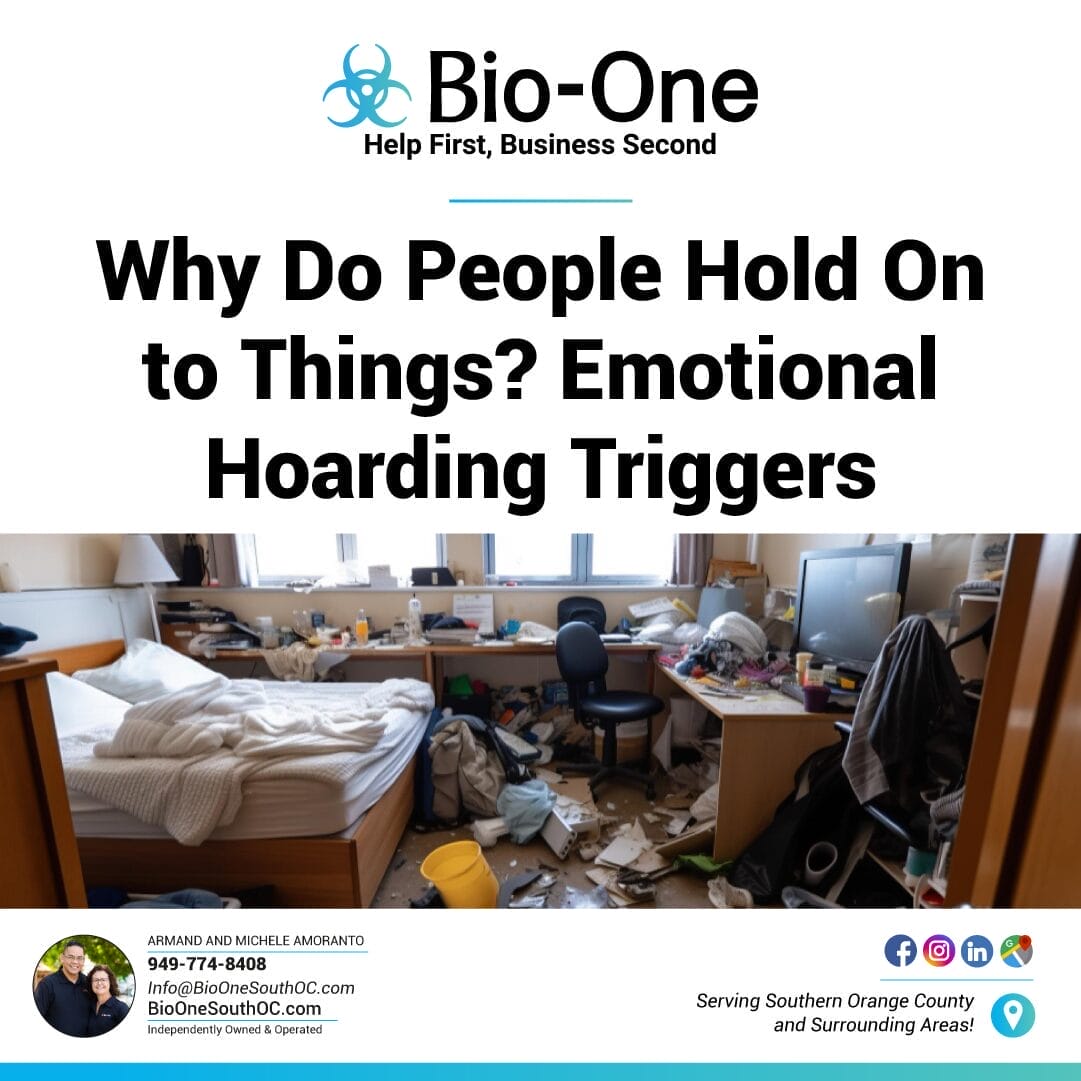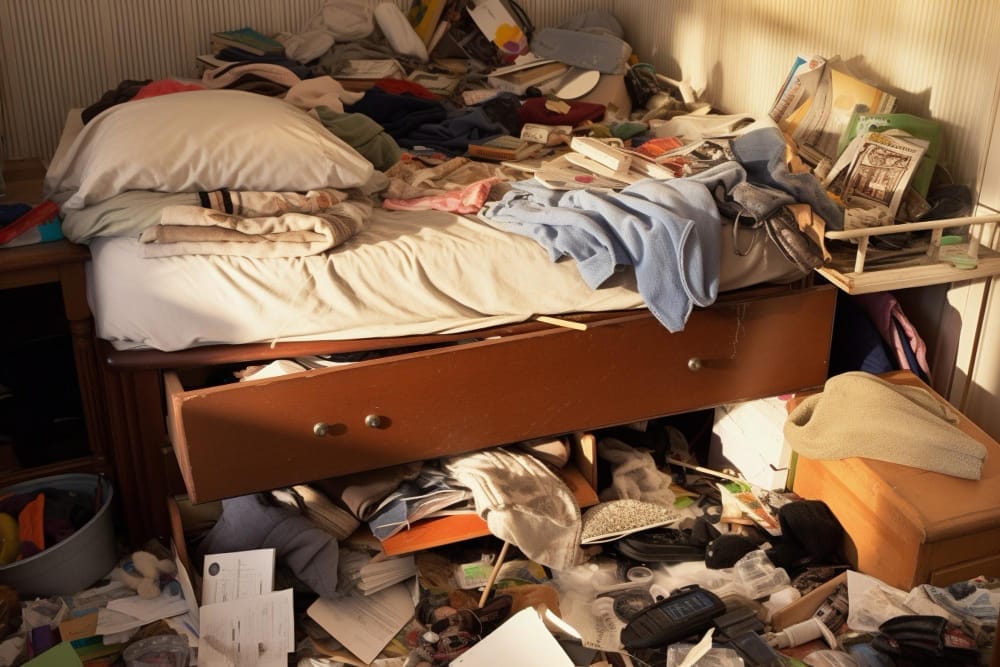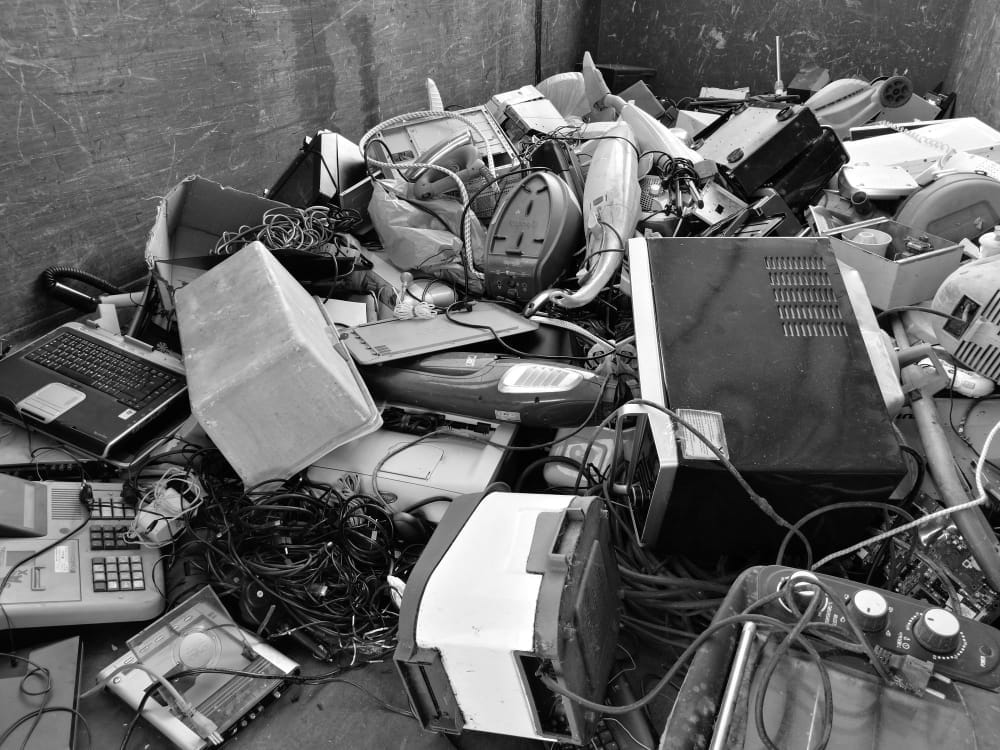
Hoarding is more than just a habit; it's a psychological condition with drastic effects on an individual's life and well-being. For many, it's not about collecting treasures, but about the deep-seated emotions and fears tied to these objects. Understanding the emotions behind hoarding behaviors is crucial for gaining insights and offering support. Here are five emotional hoarding triggers to help shed light on this sensitive issue.
Disclaimer: It's important to note that if anyone is struggling with hoarding behaviors, help is available. Bio-One of South OC specializes in hoarding cleanup services and also provides resources to connect individuals with the necessary mental health professionals to address and overcome hoarding. Remember, reaching out for help is a sign of strength, not weakness, and it's the first step towards reclaiming your life.
Trigger 1: Sentimental Value
Sentimental value is perhaps the most common hoarding trigger. It's the emotional attachment people form with objects they associate with important people, events, and times in their lives. Many hoarders fear that letting go of items means losing the memories they represent. This fear can result in clutter and chaos as hoarders hold on to every little thing, from old birthday cards to broken souvenirs.
Trigger 2: Fear of Scarcity
For some, the fear of not having enough is overwhelming. This anxiety can be rooted in past experiences with poverty or significant losses. Hoarding, in this context, is a way to cope with this fear, as each item kept represents a potential future need.

Anxiety about not having enough
Anxiety about scarcity isn't just financial, it's emotional and psychological as well. Hoarders often stockpile supplies and other items, sometimes to extremes, to feel secure against potential future shortages or disasters.
Trigger 3: Perceived Usefulness
A belief that 'you never know when you might need it' is a driving factor for many hoarders. They might place an inordinate importance on the potential value or usefulness of items, which typically results in a large accumulation of possessions.
Trigger 4: Emotional Security
Possessions offer hoarders a sense of safety and comfort. This is especially true in cases where the individual has experienced unsettling or traumatic life events. Objects represent a stable, unchanging environment that hoarders can control.
Amidst the complexities of life, objects provide a stable and unvarying presence. For hoarders, this sense of dependability and safety is often more keenly felt with their belongings than with people or other arrangements.

Trigger 5: Control and Identity
Hoarders might derive a significant portion of their identity from the objects they keep. These items may serve as an extension of their personality, history, and aspirations. Letting go means losing a part of their self-image.
Using possessions to define oneself
Possessions can be a way for individuals to express who they are and what they find meaningful. For hoarders, parting with things equates to a loss of self and the control they believe they have over their narrative and environment.
Help is Available.
Understanding these emotional hoarding triggers is only the first step in addressing the issue. The next vital step is to approach hoarding with empathy and support. Family members and mental health advocates need to offer a compassionate approach to help hoarders face their fears and let go, not of memories, but of items that have outlived their purpose. If you or someone you know is struggling with hoarding and needs help, remember that there is support available.
Related news: What is the Outlook for Someone with Hoarding Disorder?
Bio-One of South OC Can Help
Professional services like Bio-One of South OC can provide compassionate hoarding cleanup services in Southern Orange County, CA, to ensure a safe and supportive process. Give us a call to get started. If you live in the North County Area, we also provide services in the area with our office Bio-One of Oceanside.



